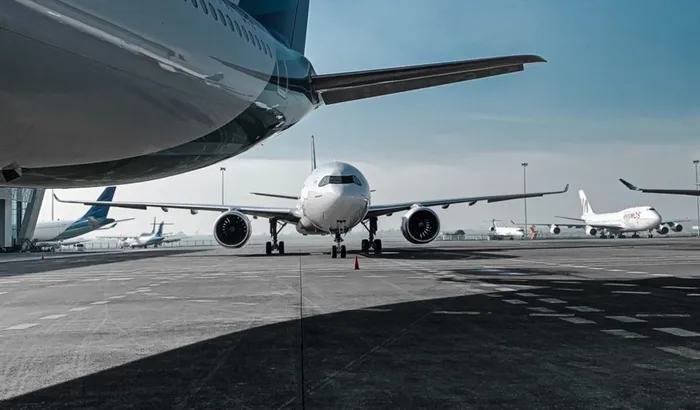Air licence applications face backlog as government deadlocks with council members

The ASLC is a statutory body responsible for awarding or revoking traffic rights to airlines based in South Africa subject to operational, safety, and liability requirements. Picture: SUPPLIED.
The backlog of air service licence applications and foreign operators permits (FOP) is stacking up again after the Department of Transport (DoT) stopped paying preparation allowances for members of both the domestic and international Air Services Licensing Council (ASLC), citing a review of the allowances and prudence in the management of public funds.
The ASLC is a statutory body responsible for awarding or revoking traffic rights to airlines based in South Africa subject to operational, safety, and liability requirements.
The members – professionals of varying disciplines in the legal and aviation sector – were appointed into the councils by the Minister of Transport at the height of backlogs in March 2022 after the sector had a close to two-year period with no regulatory functions in the aviation space.
The timing of these reforms is particularly significant as the aviation industry endeavours to rebound from the adverse impacts of the Covid-19 pandemic. With South African airlines seeking to expand their international routes and the anticipation of new operators entering the airspace, it is imperative to enhance the efficiency of regulatory processes.
Sources in the councils this week said payments of preparation allowances, reported to be below R5 000 per sitting per member, had started being sporadic from July 2023, paid only once this year at the end of March and have been outstanding since.
They said there had not been any information on a review of the preparation allowances and that the DoT, after routine enquiries, had said it would seek legal opinion on the allowances and had then stopped payments.
“We have had no communication at all, we are in the dark. How can you be expected to work if you are not paid? The airtime we use is ours,” a source said.
“Of course there will be an impact on the work. People are reluctant to take on some of the matters on the table, some outstanding because there is no motivation any more.”
The South African Civil Aviation Authority (SACAA) confirmed its administrative role in the ASLC, but said that the DoT handled the financial arrangements.
“Whilst the administrative support for both councils has been transferred to the SACAA, the payment of the council members has not been handed over to SACAA and all queries in this regard must be directed to the Department of Transport,” SACAA spokesperson Sisa Majola said.
Former minister of transport Sindisiwe Chikunga had consolidated the administration of the councils along with the Air Traffic Navigation Services (ATNS) to be under the administrative ambit of SACAA earlier this year.
Under the new framework, Chikunga said the ASLC and the International Air Service Licensing Council (ISLC) would continue to process and approve applications for new and amended air service licences while the SACAA would provide administrative assistance with receiving applications, conducting technical assessments, and publishing relevant notices within prescribed time frames.
She announced plans to digitise the licensing permit procedures for both international and domestic flights and introduced the newly established Civil Aviation Appeal Committee.
The councils, comprising four members in the ISLC and three in the ASLC, fall under the ambit of the Minister of Transport and that neither SACAA nor the DoT had jurisdiction over reporting and remuneration.
Sources said the sittings have no scheduled regularity but are necessitated by the amount of applications to be processed and are therefore convened by the chairpersons of the respective councils.
“Who gave them the mandate to review the payments? We account to the minister and it is that office that makes determinations on the councils according to the Aviations Act,” they said.
“We will escalate the matter to the new minister and we respect her work, we trust she can align the roles and responsibilities fairly.”
In response to enquiries, the DoT national spokesperson, Collen Msibi, confirmed that “the payment status of the licensing councils is currently in abeyance”.
Msibi said the department remained responsible for budget allocation of the two statutory bodies as per the Ministerial Order that delegates SACAA to provide administrative support to the functions of the licensing councils effective as from April 2024.
“The above coincided with a review of the remunerations rates for preparation for meetings of the two licensing councils,” Msibi said.
“Furthermore, this review is consistent with a need for the department to exercise prudence in the management of public funds. The outcome is to ensure that the remuneration rates are not disproportionate. The department targets to have concluded this review process by the end of August 2024.”
BUSINESS REPORT